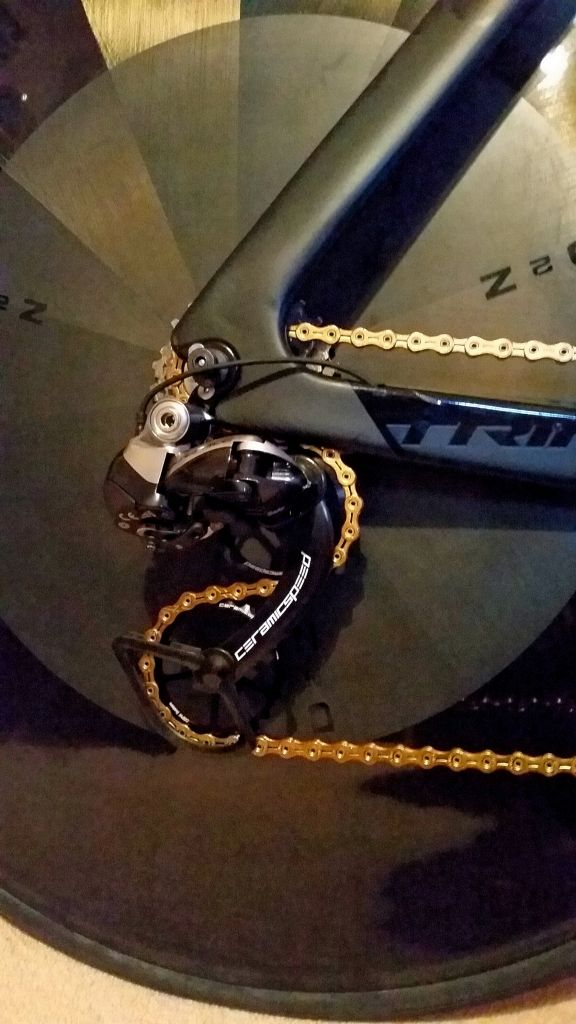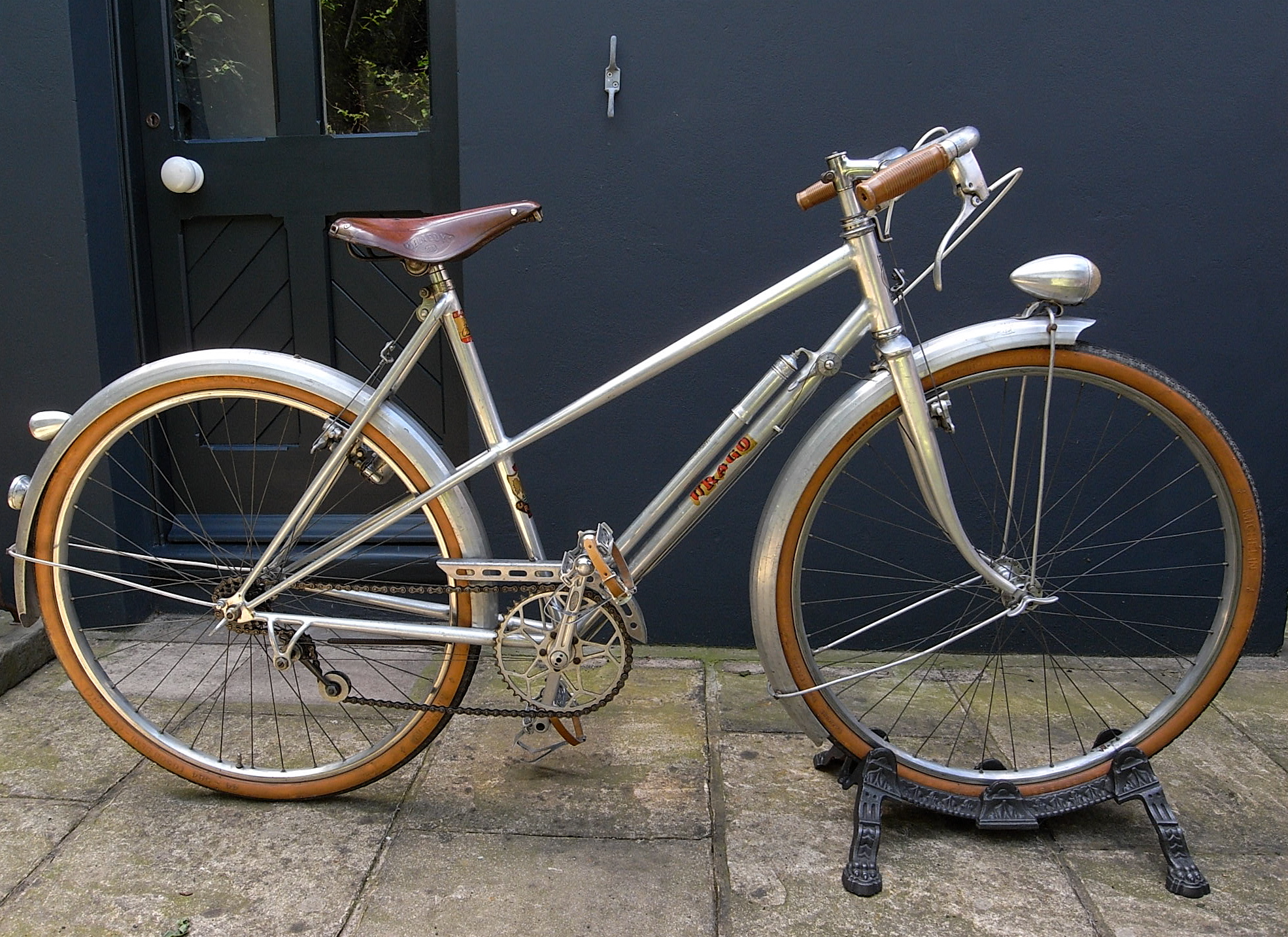-
• #95927
Who even valve caps?
-
• #95928
Who even valve caps?
Who even puts a 26" wheel in a 28" fork and jams a quill stem in the underside of the fork crown?
-
• #95929
Looks good tbf. Its a good mod, but cuts it a but close clearance wise.
-
• #95930
It's original design. Stelio Belletti build this for Polish track team back in the 80's.
-
• #95931
I have to admit that I'm not massively knowledgeable on pre war bikes metallurgy, and was just making a sweeping Internet assertion. If I had to bet, I'd say that the amount of material they'd have used, as well as the glue, would have brought it to a pretty similar weight. Let's find a pair, I've got a fiver on steel. Everyone should really use steel bikes I think. And buy from local firms.... ;)
-
• #95932
considering the weight advantage of aluminium over steel
What weight advantage? The early aluminium frames used the same tube diameters as traditional steel, and sacrificed some stiffness in exchange for slightly lower weight. The lower density material does let you push the oversize thing further, so the really light aluminium frames are super fat. If you optimise both materials and compare like for like on stiffness and strength, there's no more than a pound to be saved with aluminium.
-
• #95933
i was under the impression the difference between Alan and Vitus is that Alans are threaded tubes pasted with bond and screwed in
vitus just bonded tubes into lugsYour impression is generally correct, except that Vitus lugs plug into the tubes rather than the other way around, so the outside of the lug is more or less flush with the outside of the tube.
-
• #95934
I'd say that the amount of material they'd have used, as well as the glue, would have brought it to a pretty similar weight.
If you optimise both materials and compare like for like on stiffness and strength, there's no more than a pound to be saved with aluminium.
This was what I was getting at, what with a pound of aluminium being lighter than a pound of steel...
-
• #95935


-
• #95936
That is nothing compared to the Nicola Barra (1941), he was the master when it come to aluminium construction, the majority of his randonneur bicycles were under 10kg, and that included the tyres, bottled dynamo, mudguard and rack.
They were named Barralumin;



-
• #95937
More Barra aluminum 650b from the late 40's.






-
• #95938
This particular model weight 9.5kg;



-
• #95939
£500 aftermarket derailleur cages aren't porn
-
• #95940
Hmmmm, seems like everyone is in general agreement. However, we are on the Internet, so shall we slag off each others parents, then respond with pithy memes?
-
• #95941
No, your a meme
-
• #95942
Bet they were like £1,000,000 in the day. Looks amaze. Was that one bought, then popped in a shed and forgotten about?
-
• #95943
Thanks Ed, most interesting!
-
• #95944
No, your an meme
ftfy
-
• #95945
everyone is in general agreement
I thought there was something odd going on...
-
• #95946
Maybe jet fuel does melt steel beams after all?
-
• #95947
That's just astounding
-
• #95948
Not really, the condition were pretty good for a lots of Barra, they don't fetch that high, despite being a rare frames.
-
• #95949
.
1 Attachment
-
• #95950
6S.
 Scilly.Suffolk
Scilly.Suffolk Tijs
Tijs HHC
HHC kenzo
kenzo gbj_tester
gbj_tester Gaston
Gaston edscoble
edscoble umop3pisdn
umop3pisdn Dammit
Dammit Howard
Howard fredtc
fredtc Poetic
Poetic
 @Velocio
@Velocio
Are you saying an adequately strong aluminium bike, built with what was available in the Fifties would have weighed a similar amount to steel?